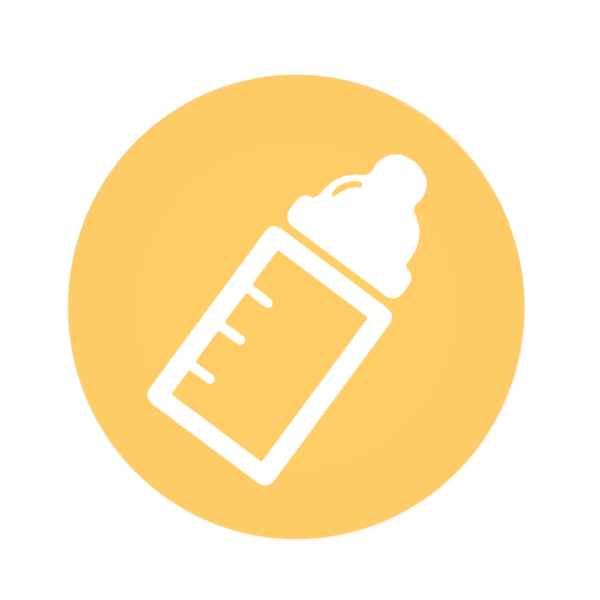Breast milk or formula milk?
Feeding your baby

Many new mothers are always debating in their heads as to what to feed their newborns. Here are the pros and cons of each type of milk your baby should receive in the first 6 months.
Breastmilk or formula?
Doctors and the World Health Organization (WHO) recommend that children be exclusively breastfed in the first 6 months. However, certain circumstances may make that difficult to attain.
Baby’s benefits of breastfeeding
- Lower chances of diseases: Breastfeeding decreases your baby’s risk of respiratory tract infections and diarrhea. Other benefits include lower risks of asthma, food allergies, celiac disease, type 1 diabetes, and leukemia. Some research suggests that breastfeeding may even improve your child’s cognitive development and decrease the risk of obesity in adulthood.
- Gentle on the stomach: Breast milk is the best food for a newborn’s delicate gut because it contains nutrients, such as lactose, protein (whey and casein), and fat, which are easily digested.
- Strong immunity: Breast milk contains antibodies that help strengthen your baby’s immune system and help fight infections.
Your benefits of breastfeeding
- Aid weight loss: Breastfed mothers lose weight faster, have better uterus shrinkage, and have a decreased chance to experience postpartum depression. Breastfeeding also delays the return of menstruation and fertility, a phenomenon known as lactational amenorrhea.
- Lower chances of other diseases: Long-term benefits for breastfeeding mothers include decreased risk of breast cancer, cardiovascular disease, and rheumatoid arthritis.
Limitations of breastfeeding
Breast milk digests faster, so breastfed babies may feed more often than formula-fed babies. You might need to feed your baby as often as every 2 or 3 hours in the first few weeks.
There are situations where a mother may not be able to breastfeed due to health and lifestyle reasons. For instance, a mother who is infected with the human immunodeficiency virus (HIV, the virus that causes AIDS) or undergoing chemotherapy cannot breastfeed.
Formula milk
The decision to breastfeed or formula-feed a baby is a question of comfort, lifestyle, and specific medical situations. Mothers who can’t breastfeed — for one reason or another — or who decide not to, can use infant formula as a healthy alternative. Babies can get all the nutrients they need to grow and thrive from infant formula.
Benefits of formula milk
- Less frequent feeding: Formula is a good alternative to breast milk. Formula takes longer to digest, so a baby who is getting formula may not feed as often as a breastfed baby.
- Many choices: Babies have different tastes – while some prefer formula made from goat milk, others enjoy cow milk better. In the market, there is a wide variety of choices to choose for your baby.
- Anyone can feed the baby: Anyone can help you feed your baby whenever you are busy or sick. And it always gives other family members a chance to bond with your child too.
Limitations of formula feeding
- Expensive: Breast milk is free while formula milk is not. For financially sensitive families, this can be an obstacle.
- Lots of things to carry: When you are out, you have to carry clean bottles, formula milk, and sterile warm water. And if you’re out for a long time, finding the place to sanitize those bottles for the next feeding might be a challenge.
- Bonding: Some moms are concerned that if they don’t breastfeed, they won’t bond with their baby. You can provide skin-to-skin contact during your bottle-feeding sessions; and keeping eye contact with your little one can also help with bonding.
Regardless of your feeding method, loving mothers who spend quality time with their babies always bond with their little ones. So choose whatever that makes everyone happy.
Verified:
Dr. Wanwadee Sapmee Panyakat (OB-GYN), license no. 41208 (17 November 2021)



